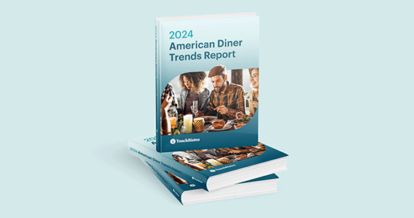Want to take your passion for food on the road? You’ll first need to know which food truck licenses are required in your area to open up your spot.
If you know way ahead of time the permits and licenses needed to run a food truck, it will be easier to stay on time and on budget – because trust us, you don’t want to get caught up in red tape when you’re ready to open your food truck window to the masses.
In this article, we’ll tell you:
- The common licenses needed to run a food truck
- The common permits needed to run a food truck
- Checklists for food truck permits and licenses in major cities like New York City, Chicago, L.A., Austin, Toronto, and Vancouver (including estimated costs)
Common Food Truck Licenses and Permits
The rules and regulations on food trucks vary from state to state and city to city. But there are some common permits and licenses across regions for food truck owners. The licenses and permits may go by different names, but they cover similar things.
Always check in with your local city and state business offices to obtain a list of the permits and licenses you’ll need. Also note that you’ll need to have food truck licenses and permits for any area you plan to visit to sell your food. If, for example, you are crossing state lines to sell at a music festival, you’ll have to comply with your home state and the visiting state.
Here is a list of the most common licenses, permits, and certifications you need to open and sell food from a food truck.
Business Licenses for Food Trucks
First things first: if you’re starting a food truck business, you’ll need to have the business side of things covered. The history of the food truck may include humble beginnings, but today, these mobile eateries are culinary empires that run like any other restaurant business.
✓ Business license or vendor license: Available from your state, a business license (sometimes called a vendor license) registers your food truck as a business.
✓ Tax ID: A tax number is basically a permit from your state that gives you the authority to collect sales tax. You’ll also need it if you are purchasing ingredients or supplies in bulk or wholesale. In some states, this number is often also your business number assigned to you on your business license.
✓ Employer Identification Number (EIN): An EIN is a federal identification number for your business. It will be used on forms and applications instead of your personal social insurance number.
Vehicle Licenses for Food Trucks
Your truck comes with its own requirements – it is a motor vehicle, after all.
✓ Driver’s license and registration: No surprise here, you definitely need a driver’s license and proof of registration. Note that the weight of your truck matters for the type of license that you need, and it’s possible that you’ll be required to have a commercial driver’s license. It’s also possible that your truck will need commercial plates. Check with your local DMV to confirm what’s required to comply.
Operations Permits for Food Trucks
Similar to a restaurant or any food seller, permits and certificates are required from your health state department to ensure that food handling is up to standard.
✓ Mobile food vendor permit: Sometimes called a “mobile food vendor license,” it’s the hardest permit to obtain. Some cities have a limited number that can be in use at one time, while others do a lottery to decide who gets one, and even others have years-long waiting lists. Check with your city to see what’s in store and how hard or easy it’ll be for you to get yours.
✓ Food handler or certified food manager certificate: Standard for any foodservice business, food handler training, (also known as a “food manager certificate”) is required for storing, cooking, and handling food.
✓ Facility record and food purchase records: In some cities and states, food is not allowed to be prepared on a truck; instead the use of a cooking facility is required. In this situation, paper records of use of the facility, depot, or commissary is necessary.
✓ Parking permit: Pretty much everywhere, food trucks are not permitted to park wherever they want. So you’ll need permits for the areas in which your truck will be stationed. You’re often required to pay for parking, too.
Food Truck Commissary Permits
Let’s start with the basics here.
What is a food truck commissary?
A food truck commissary is a commercial kitchen space where you can prepare and store food, so everything doesn’t have to happen in your truck. It’s your food truck’s home base.
Commissaries make it easier to get ready for that summer lunch rush by pre-portioning dishes where there’s room to spread out and store extra ingredients you can’t keep on the truck. Some commissaries also offer a place to park, recharge electricity, refill water and propane tanks, and dispose of greywater (if your food truck has a restroom).
For some, this makes food truck life more convenient. For others in certain cities, food truck owners are required to prepare or store food in a commercial kitchen, rather than on the truck or at home.
Food truck commissaries can be rented from a larger commercial kitchen (within either a private or shared space), which is a less expensive option than building and licensing your own.
Here are a few things to note about food truck commissaries and the permits required for them:
- In some cities (such as Boston), you are required to have a commissary set up BEFORE getting your food truck permit.
- Commissaries that are rented from a commercial kitchen: In most areas, you’ll be covered by the licenses already in place at that commercial kitchen, but you will have to provide your own insurance. (Just remember to choose your rented commissary wisely. If they lose a permit, you’ll have to find somewhere else to prep, cook, and store your food. You’ll also be subject to whatever inspections happen at the kitchen, whether you’re physically present or you’re just storing food there.)
- Commissaries that are owned commercial kitchens: To run your own commissary, you’ll be in charge of getting and maintaining all the standard permits and licenses required of a commercial kitchen in your city, including a food service establishment permit (food handler’s permit), building health permit, employee health permit, and any other local permits.
Food Truck Licenses in Major Cities
Make sure to check your local laws for licenses specific to your area – each state or city has specific requirements. Here are some licenses required in different major cities.
Food Truck License Checklist for New York City
✓ Mobile food vendor personal license
$74–$200
✓ Mobile food vending unit permit (for each truck you operate)
$15–$200
✓ New York City Department of Health and Mental Hygiene permit
$280, plus $25 if you manufacture frozen desserts
✓ New York State tax permit and certificate (must file quarterly)
No fee
✓ Food handling certification
$25
✓ Employer Identification Number (EIN)
No fee, if you file yourself
✓ Driver’s license and registration
$140–$180
Since there is usually a long waitlist for the mobile food vendor permit, food truck owners can apply for a restricted area permit instead, which lets you operate in the city’s parks but not on the roads.
NYC has so many rules and restrictions for food trucks, running your business here might feel a lot like playing dodgeball. Check out the full list of rules and regulations before you get started, including street restrictions and health code rules. You can also get more general information about NYC food truck licenses and permits here.
Food Truck License Checklist for L.A.
✓ Business tax certificate (from the Office of Finance)
No fee
✓ Public health operating license (from the L.A. County Department of Public Health – Environmental Health and Safety)
$150–$600+
✓ Licensed commissary rental or ownership
Ownership prices vary
For rental, $500 to $1,500 per truck per month
✓ Manager’s food safety certification (for you and any employees)
$99 per person (for course and exam)
✓ Food handler permit
$7 per person
✓ Employer Identification Number (EIN)
No fee
✓ Driver’s license and registration
$110–$260
According to California law, all food trucks must have access to a commissary (either rented or owned) that has been approved by the County Department of Public Health. A commissary is required to prepare food, store inventory, and park your vehicle when it’s not in use. Get more information here and here.
Food Truck License Checklist for Chicago
✓ Mobile food license (either mobile food dispenser or mobile food preparer)
$700–$1,000 (2-year term)
✓ Retail food establishment or shared kitchen user business license
$330–$660 per shared kitchen or user
✓ City of Chicago food sanitation manager certificate
$40
✓ Fire safety permit (if your truck has a gasoline or electric generator, propane, compressed natural gas, or fire-suppression hood)
$250
✓ Employer Identification Number (EIN)
No fee
✓ Driver’s license and registration
$200–$250
In Chicago, the mobile food license fee and required inspections vary depending on what type of food you serve from your food truck and whether you prepare food on board.
According to Illinois State Law, you can’t prepare or store food intended for sale in your home kitchen, so you’ll need to rent or own a licensed commissary in Chicago.
For step-by-step instructions on how to apply for these food truck licenses and permits, including specific requirements and fees, visit the City of Chicago Business Affairs and Consumer Protection.
Food Truck License Checklist for Austin
✓ Mobile food vendor permit (restricted or unrestricted)
$420–$500
✓ City of Austin food manager certificate (at least one)
$32–$85
✓ State-approved food handler training course certificates (for all other employees)
$7–$10
✓ Registered Central Preparation Facility (CPF) certification (agreement with your commissary)
$150
✓ Employer Identification Number (EIN)
No fee
✓ Driver’s license and registration
$60–$75
Restricted mobile food vendor permits allow you to sell only prepackaged food, which means you can’t handle or prepare any food in your truck. Unrestricted mobile food vendor permits allow you to sell food that is packaged and/or prepared in your food truck.
Your registered commissary must have a valid Fixed Food Enterprise (FFE) permit for you to prepare and store food at their facilities. They also need to follow other rules laid out in in the CPF contract.
For more information, check out the Austin, Texas mobile food vendor permit application, as well as the document Mobile Food Business: Requirements and General Information.
Food Truck License Checklist for Toronto
✓ Food handler certification
$40-$90
✓ Mobile food vending permit
$1175.41 application fee ($781.85 for renewals)
$3128.17–$6256.34 permit fee
✓ Refreshment truck license (one for you as the owner and then additional licenses for anyone else driving or preparing/serving food in the truck)
$1,030.25 for the first year as owner ($690.01 for renewals)
$342.52 for the first year as driver or assistant ($253.49 for renewals)
✓ Green P permit (if you want to do business in city parking lots)
Regular and hourly rates vary
✓ Temporary sign permit (if you have A-frame or mobile signs separate from your food truck)
$121.49–$159.83
✓ Driver’s license and registration
$210–$250
✓ Commercial vehicle operator registration (if your food truck weighs over 4,500 kg)
$35
✓ Business license
$60–$80
To get more information on what’s required to obtain permits for food trucks in Toronto (including health and safety inspections), visit this page.
Food Truck License Checklist for Vancouver
✓ Street food vending permit
$53.06 application fee
$879.71–$1173.37 + GST permit fee
✓ Roaming food vending permit (allows you to change locations)
$158.89–$316.56 + GST (per vending unit)
✓ Food service permit (allows you to serve more than prepackaged food)
$75 per month
✓ Vending unit storage facility (aka commissary)
No fee
✓ Municipal vehicle decal
$25–$40
✓ Commercial vehicle license and registration
$150–$170
✓ Business license
$40
Vancouver has a limited number of street food vending permits, so it can be tricky to get into the game here. If a spot does open up, the city uses a scoring system to award new permits. They also have a lot of rules for where you can go (if you have a roaming permit), how many display boards you can use to advertise, and what changes you can make to your approved menu.
No matter what city your food truck calls home, before you can hit the road your vehicle will need to be inspected by a city or state health department. Once you’re on the road selling up a storm, you can expect an inspection at least once a year – often a surprise visit from a health inspector, so you’ll need to have proof of the permits, licenses, and certificates with you to show the inspector.
After you have all of your paperwork in order, it’s time to hit the open road and start selling your delicious food to customers!
Free job application template for restaurants







